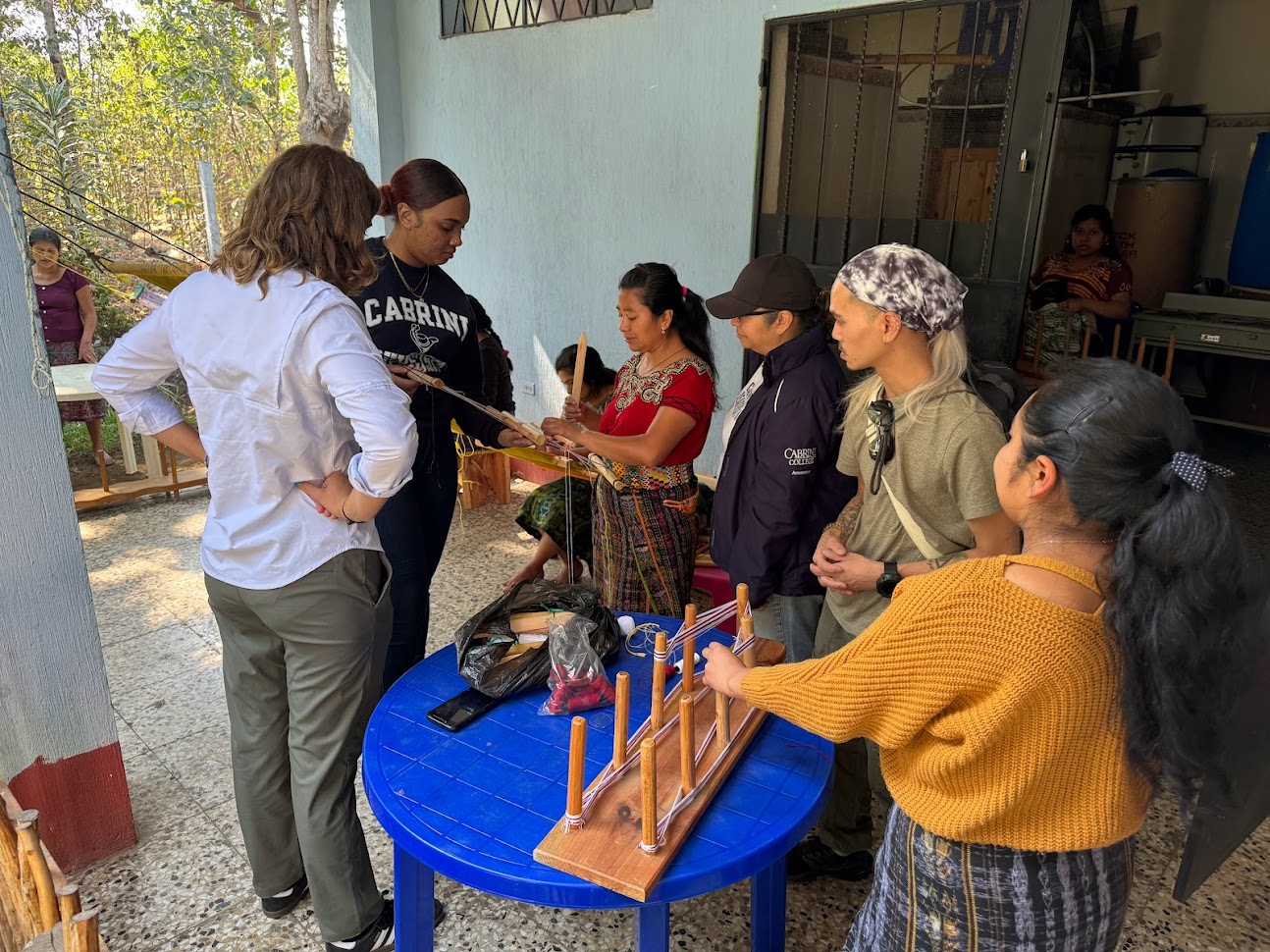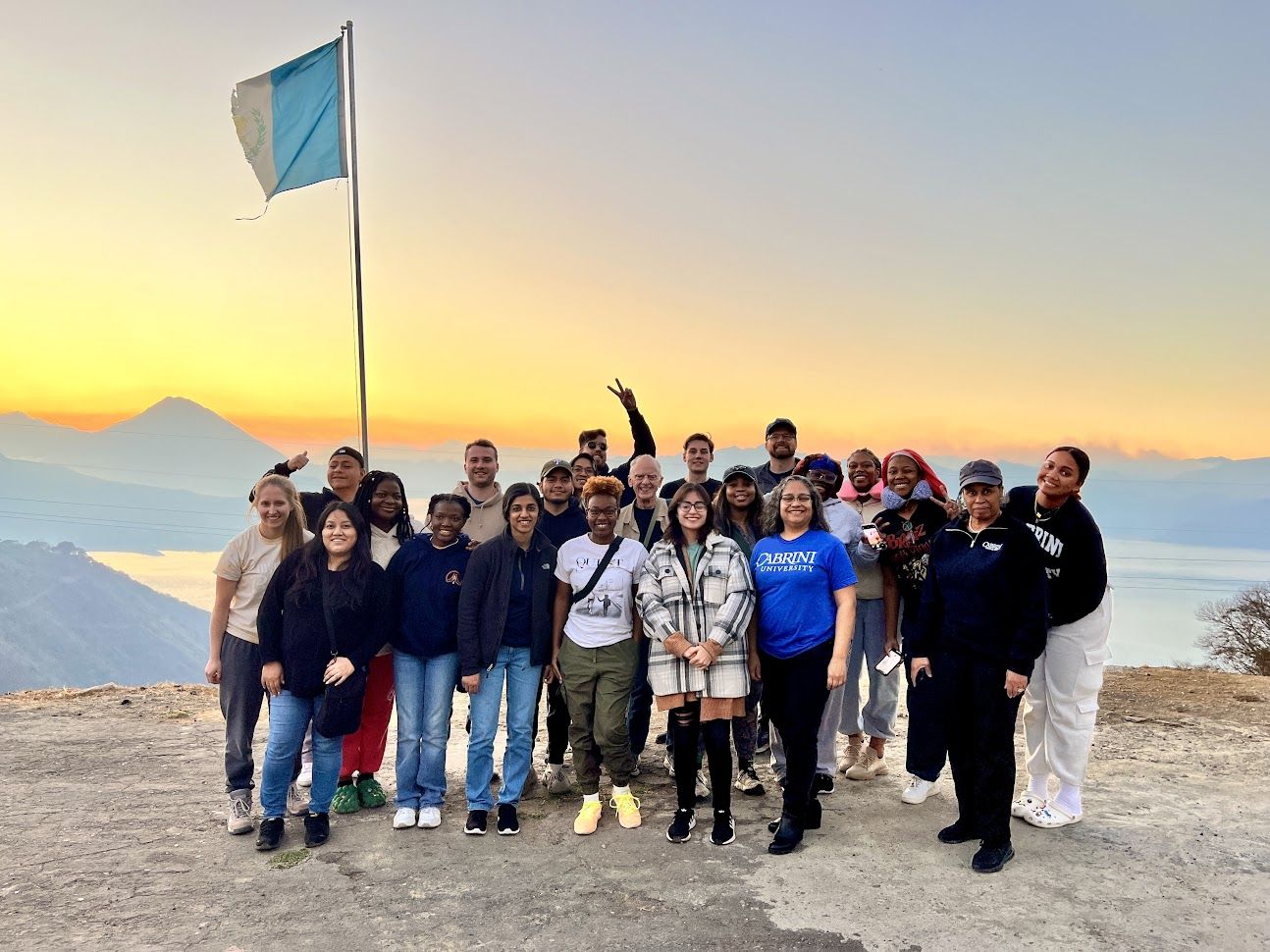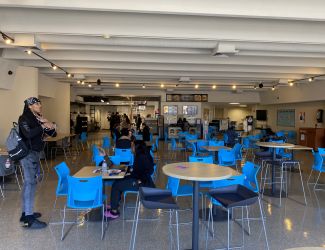Over a decade ago, Cabrini University began a study abroad course where students visit Guatemala to provide community service for and learn from, its residents.
Over a century ago, St. Frances Xavier Cabrini and the Missionary Sisters of the Sacred Heart of Jesus, sought to “educate the hearts” of those around them. The education of one’s heart is meant to create leaders who are committed to helping people in need.
A unique perspective
Over the course of the spring semester, students enrolled in ECG 300, “Working for Justice in Guatemala,” learn about San Lucas Tolimán, the town they visited in Guatemala.
Dr. Jerry Zurek, the communications professor in charge of the ECG, said, “Lots of colleges have students go on mission trips. What’s unique about this [trip] is it’s part of a course. Usually, it comes out of Campus Ministry. Maybe they’ll get together a couple of evenings, but nothing in-depth. In this course, we learn about the history of Guatemala, their values and culture.”
The mission of the trip
A’Niyah Stillis, a senior psychology major, found the experience meaningful despite only spending a week abroad. Stillis said, “The mission of the Guatemala trip was to expose us to certain issues in Guatemala, issues they have on a day-to-day basis.” For years, inhabitants of Guatemala have been trying to rebuild after a devasting civil war.

Stillis, along with her classmates, participated in community service. “Half the day was spent doing work with the community, and half the day was learning from the community,” Zurek said.
The students also dedicated a lot of time to working with the Women’s Center, where they learned what it is like to be a woman in poverty in San Lucas Tolimán, from preparing meals from scratch to washing clothes by hand.
Lasting effects of war

From 1960 to 1996, Guatemala experienced violent conflict. “[The United States] actually helped overthrow the president of Guatemala, and that started a civil war,” Zurek said. Jacobo Arbenz, the president of Guatemala from 1951-1954, put laws in place that reallocated farmland from large corporations to impoverished citizens.
Arbenz also attempted to nationalize the United Fruit Company, a U.S.-based company. Due to his actions as president, the United States government viewed Arbenz as a communist who opposed American capitalism. The United States government aided Colonel Carlos Castillo Armas in a coup d’état, resulting in Arbenz being overthrown and the reversal of his legislation.
Over the next four decades, Guatemala went through a brutal war between the government and the Unidad Revolucionaria Nacional Guatemalteca (URNG), a group fighting for the rights of poor Guatemalans, resulting in hundreds of thousands of deaths. The majority of those killed were Mayan. These are the indigenous people of Guatemala, and Mayans were the most impacted by the reversal of Arbenz’s laws.
In 1996, Guatemalan President Alvaro Arzu and URNG leaders finalized negotiations for peace and ended the decades-long conflict.
However, the Guatemalan Civil War created lasting effects that could still be felt almost 30 years after it ended.
The students of ECG 300 spoke with people who lived through the war. Stillis said, “There was one man who talked about his experience of being a child in all the chaos, and how he is triggered by certain sounds. It showed me how damaging that war was.”
The next steps
“Now we’re preparing to go to Washington, DC,” Zurek said. The class will meet with the staffs of Pennsylvanian Senators Casey and Fetterman. The students will then speak with members of the House of Representatives from their districts. “They’ll meet for about half an hour about the needs of the country [Guatemala], how much they’ve grown, and why we need to invest in the country,” Zurek said.





